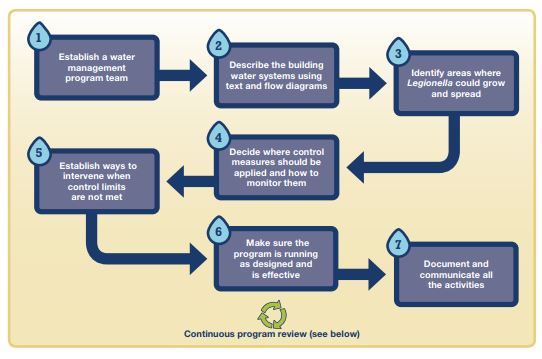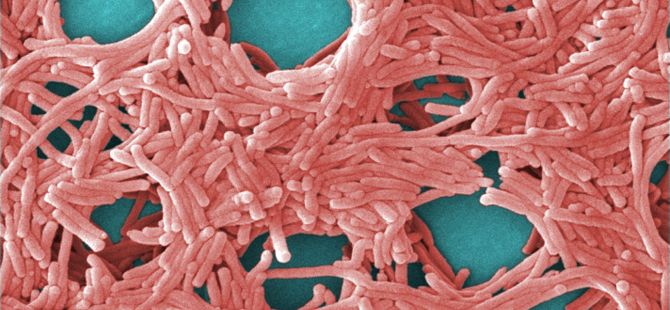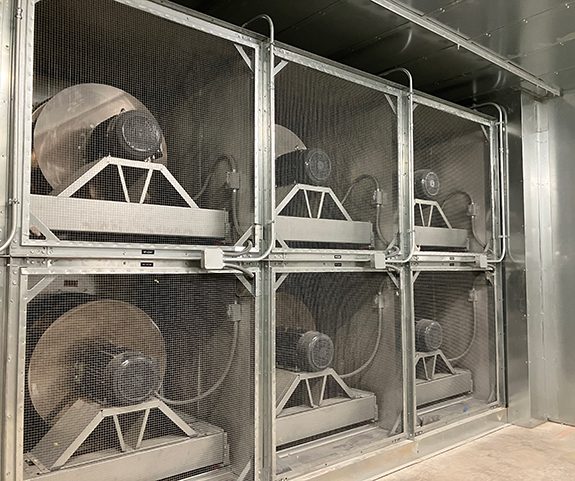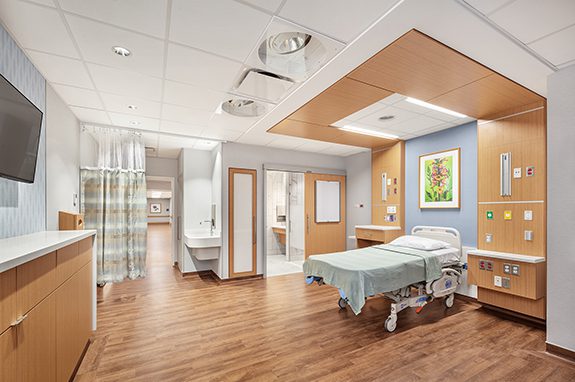Legionella, the bacterium that causes serious illnesses including Legionnaire’s Disease, thrives in contaminated water. New federal rules have focused attention on prevention.
News media have publicized periodic outbreaks since the first cases were recognized in 1976, when an outbreak after a convention held at a Pennsylvania hotel resulted in 29 deaths. Commercial-scale central air conditioning systems and central domestic water systems are vulnerable, especially in hospitals, hotels, and large office buildings.
The Center for Medicare & Medicaid Services (CMS) — part of the federal Department of Health & Human Services — recently focused attention on Legionella by issuing new requirements for preventing and reducing its spread in healthcare facilities. Hospitals and nursing facilities participating in Medicare must now implement policies and procedures that reduce the risk of growth and spread of Legionella and other opportunistic pathogens in building water systems. The CMS rule encompasses plumbing (domestic water) systems and devices connected to them, including whirlpool spas, humidifiers, decorative fountains, and cooling towers.
The CMS memorandum “Requirement to Reduce Legionella Risk in Healthcare Facility Water Systems to Prevent Cases and Outbreaks of Legionnaires’ Disease (LD)” became effective on June 2, 2017. It expands on the current Standard of Care provided in ANSI/ASHRAE Standard 188-2015, Legionellosis: Risk Management for Building Water Systems.
Facilities covered by the CMS memorandum must implement water management programs based on ANSI/ASHRAE Standard 188-2015, as well as the Centers for Disease Control’s toolkit publication “Developing a Water Management Program to Reduce Legionella Growth & Spread in Buildings: A Practical Guide to Industry Standards.”
The new rule requires control measures such as “physical controls, temperature management, disinfectant level control, visual inspections, and environmental testing for pathogens.” Accrediting organizations will enforce the rule by surveying healthcare facilities and citing those that do not comply.
Though the CMS memorandum only affects healthcare facilities, its advice is broadly applicable to all kinds of sites with commercial domestic water systems, which continue to be covered under ANSI/AHRAE Standard 188-2015. Sometimes the source of a problem may not be the building’s central domestic water systems or cooling towers, but rather an amenity such as a decorative fountain or whirlpool spa, where contaminated water is easily aerosolized. Outbreaks entail legal exposure as well as the risk of business interruption.
Because the standard can be a bit difficult to understand, G/BA recommends downloading and studying the CDC toolkit mentioned above. This publication summarizes Standard 188-2015 and is a great first step for implementing a program to manage Legionella in your building’s water systems.
The toolkit includes useful information, such as the steps to an effective water management program diagrammed below.

G/BA can help you deal with Legionella risk in your facility. Contact Joe Ficek, leader of our experienced plumbing engineering team, at jficek@grummanbuktus.com.



